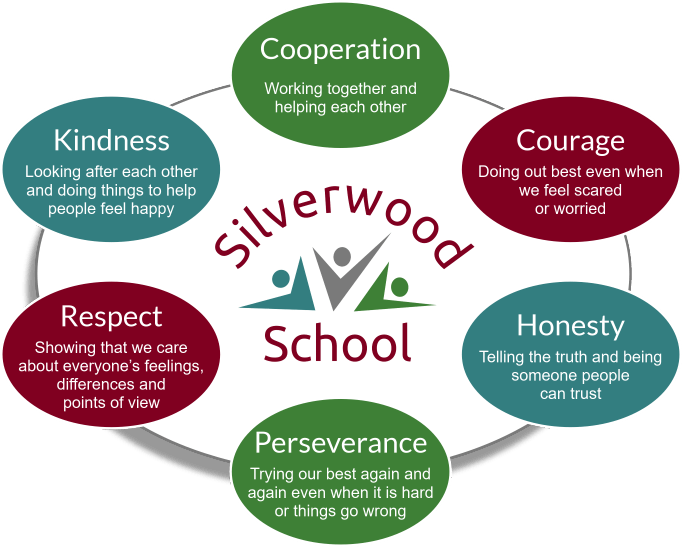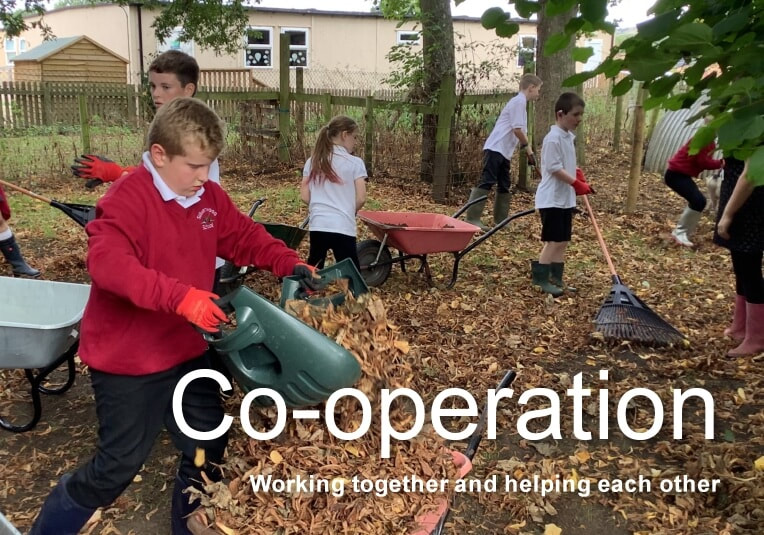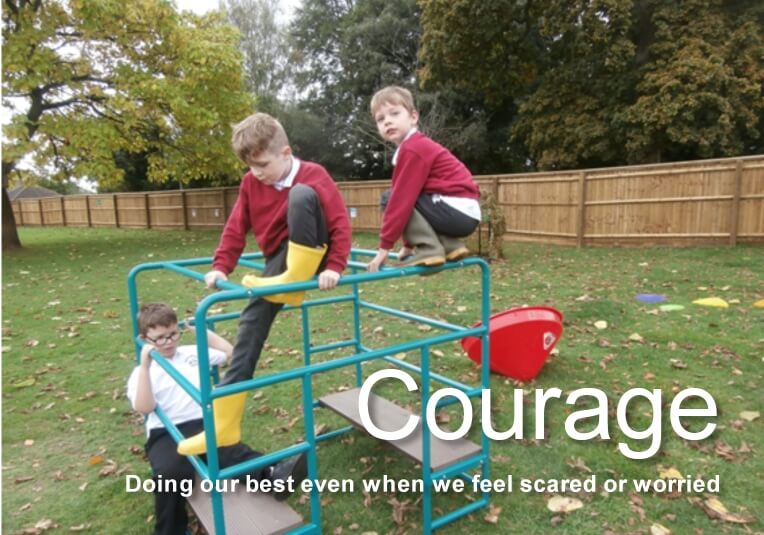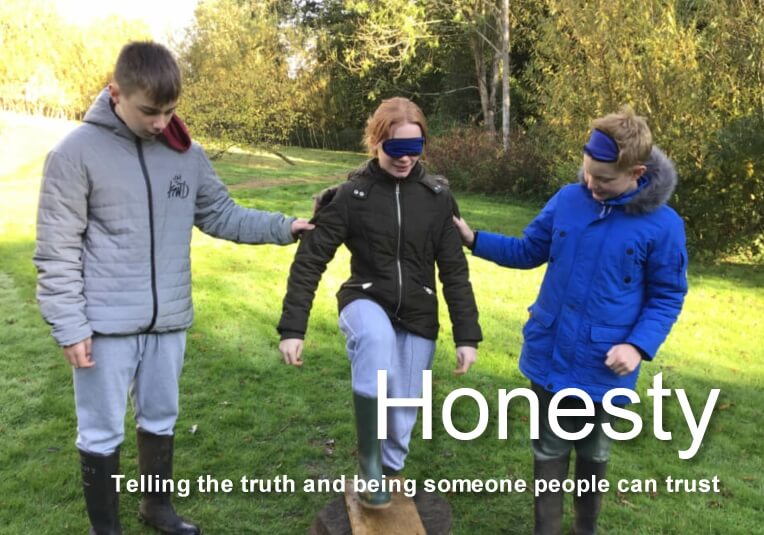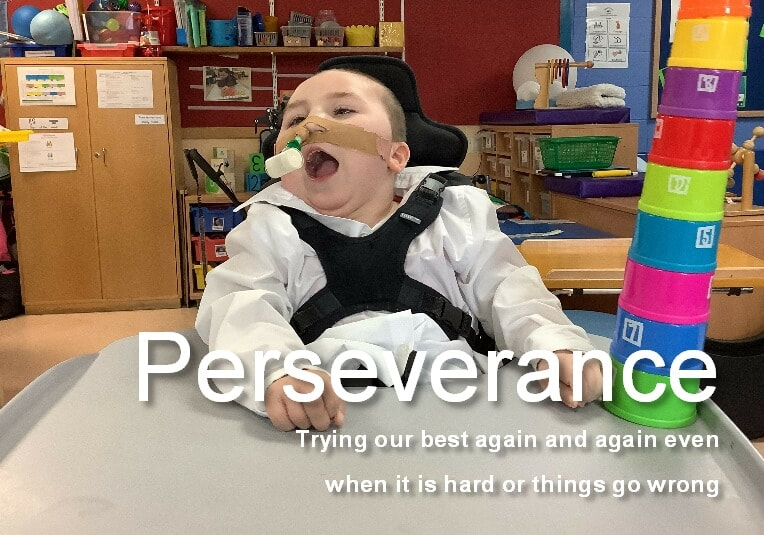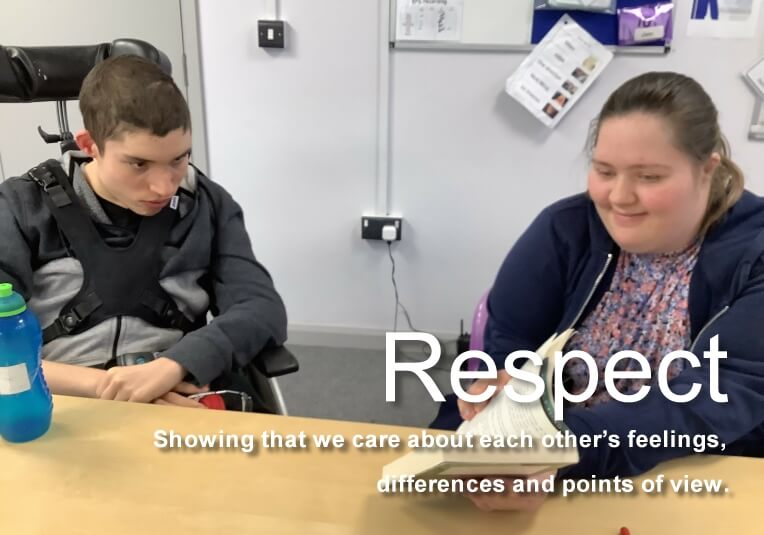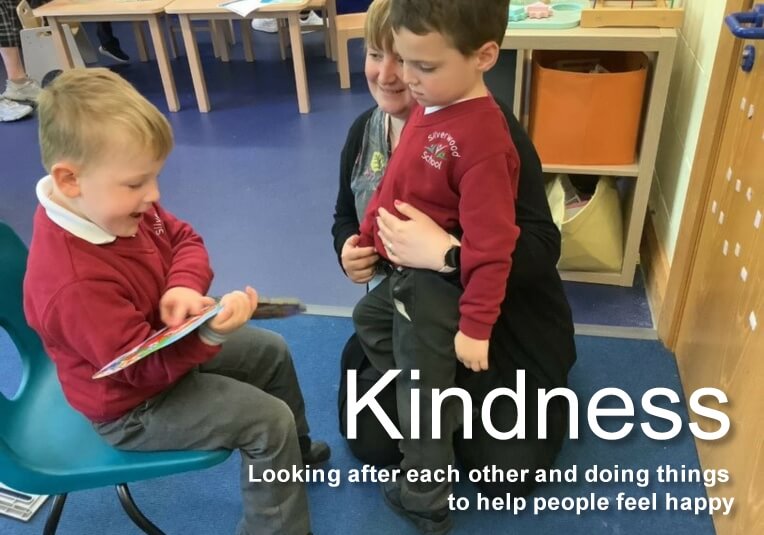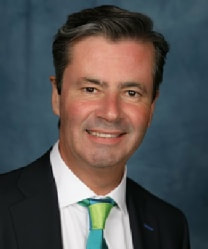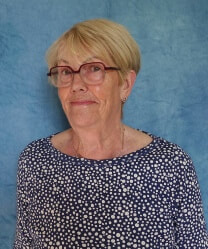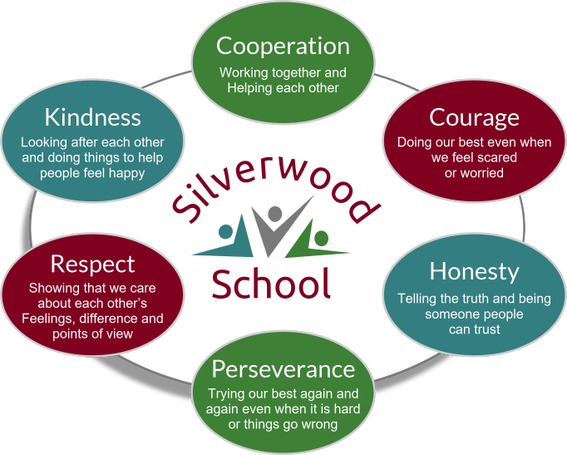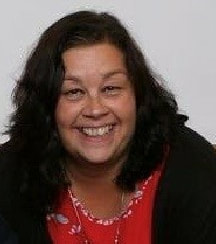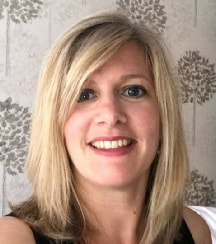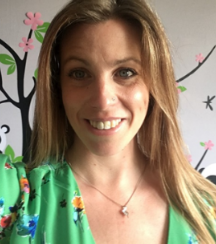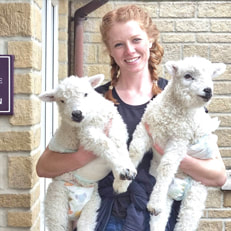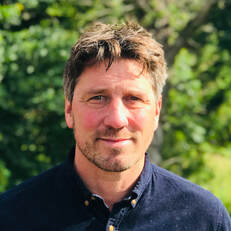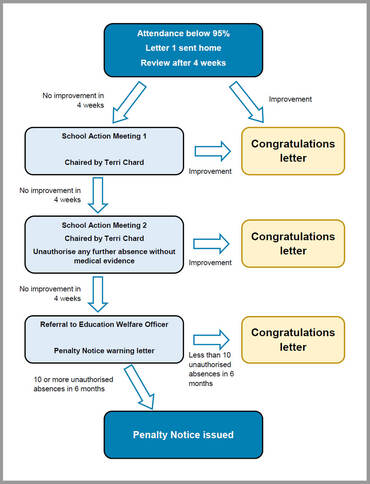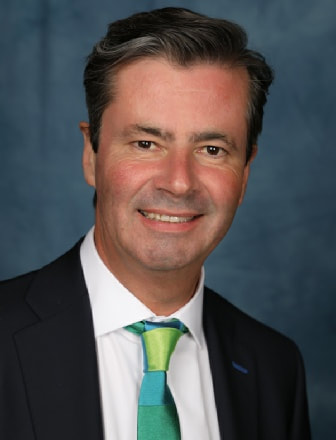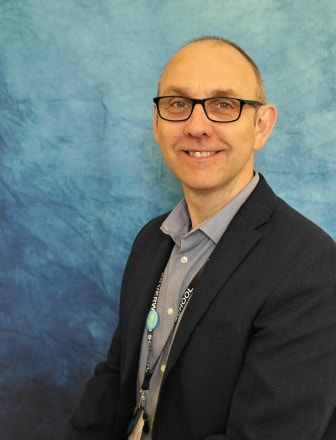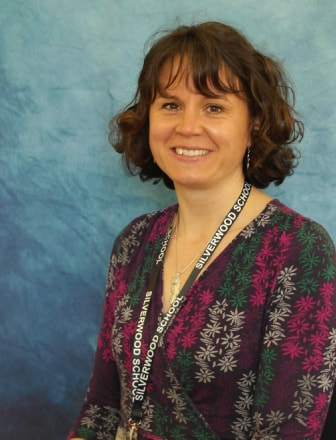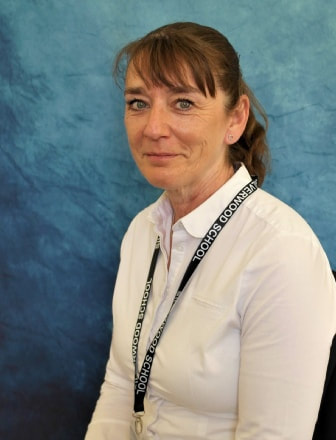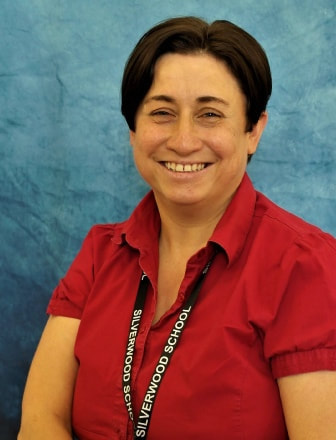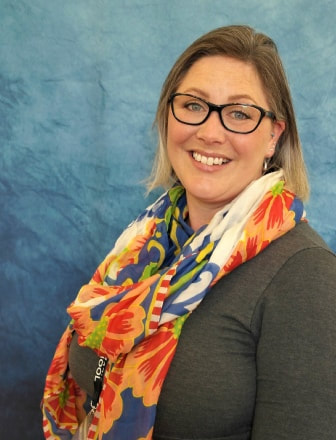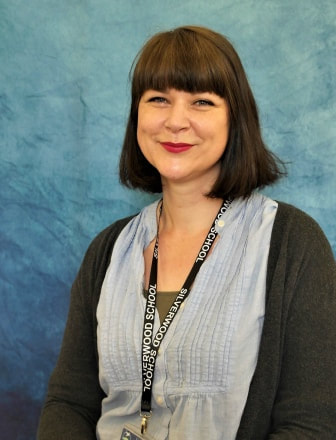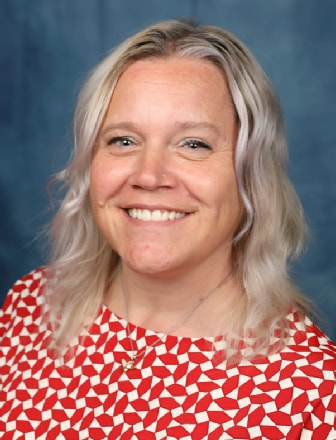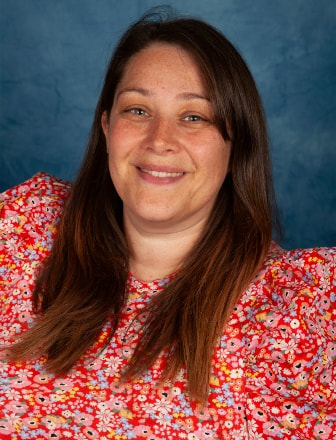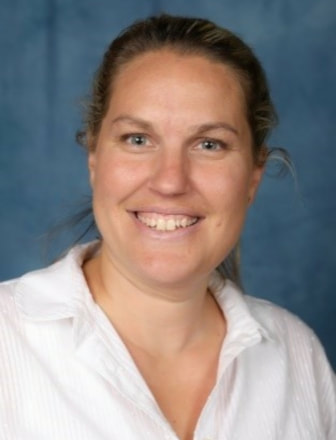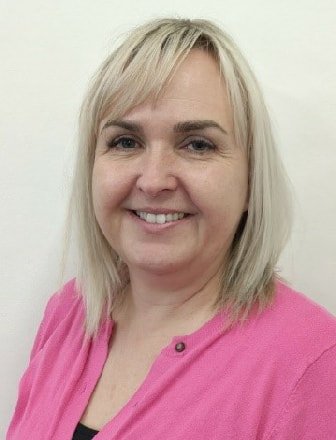|
Design Technology gives all pupils the opportunity to learn future life skills in a safe and supported classroom or workshop environment. All pupils are able to enjoy the discovery of the cause and effect of different tools and processes which enable them to create objects and as they progress with their learning they experience a sense of ownership and pride. Pupils discover that manufacturing processes lead to a useful and purposeful product that can be taken home. Alongside these values’ DT helps to develop a sense of keeping safe and being responsible whilst working with tools and in a working environment. Pupils experience a wide range of practical experiences including CAD and electronics, that enable them to learn, enjoy and develop skills, including motor skills, whilst making a range of products with different uses. The subject is delivered across the school to cater for a range of different pathways and abilities with the exciting opportunity, where appropriate, for pupils to gain an accreditation. Overall, we aspire to provide pupils with the opportunity to develop problem solving skills, curiosity, confidence and resilience that they can transfer to all areas of their lives.
Our ambitious music curriculum is designed to engage and motivate all pupils to respond and interact with a range of musical styles, cultures and instruments through a multi-sensory and immersive approach. All pupils are supported to express themselves, and given opportunities to communicate in new ways. Links between music, creativity and communication are actively promoted. The curriculum supports all pupils to experience, explore and create something that celebrates diversity and personal identity. Curiosity and experimentation is encouraged and all outcomes are valued. Music is taught both discreetly and embedded throughout the curriculum ensuring that skills are transferrable both in school and in the wider community. All pupils will appreciate the joy that listening to music brings in addition to experiencing performance.
At Silverwood School, we provide an ambitious computing curriculum which is designed to motivate, engage and enthuse pupils, whatever their path through school. Pupils will be able to utilise technology in a positive way to benefit their everyday lives. Pupils will learn to recognise technology around them and the significant role it plays. Pupils will learn how to access devices, which may be connected to the internet, safely and responsibly. They will learn to utilise and experience assistive technology effectively, with appropriate help where required to support their diverse needs. This knowledge will provide pupils the opportunity to interact with their world, communicate effectively using a variety of media and be as independent as possible throughout their school life and beyond. They will learn how to access the internet and utilise the information it contains whilst keeping safe and protecting themselves.
Pupils will also learn how computers work and that they are made up of hardware and software. They will learn how to access common software packages and how to utilise its functions and features. Pupils will also study programming which will help develop skills like planning, sequencing, decomposition (breaking down a problem into manageable parts) and troubleshooting. Finally, pupils will be exposed to a variety of technologies that are fun, engaging and that broaden their understanding of what is possible through the use of technology. Cooking begins as a holistic experience where pupils explore using all their senses, through a multi-sensory and immersive approach, building on or establishing their relationship with food. Within this curriculum outcomes are planned which are ambitious and aim to engage and motivate every learner regardless of their age or stage of learning. Opportunities to communicate are embedded throughout the curriculum.
Pupils basic knowledge and practical ability in relation to cooking and Nutrition is a vital life skill. It makes a significant contribution to teaching students ‘how to learn’ by promoting their potential in respect of developing ideas, planning, producing edible products and evaluating them. There are opportunities for pupils to be creative and they are encouraged to express their personal identity and individuality. This curriculum always celebrates diversity through a range of learning experiences. Pupils are taught to stay safe by following kitchen routines, and are able to identify hazards. Pupils learn to appreciate that we live in an increasingly technological world with regard to the production of food, the way food is cooked and the overall impact of cooking and Nutrition on their daily lives. Sustainability and responding to environmental concerns around ‘food miles’ etc is also explored. Practical opportunities to consider food for different occasions and managing a food budget and shopping are key life skills that are revisited throughout the curriculum towards independent living. Our Maths and Numeracy curriculum is designed to be ambitious, multi-sensory and creative and is differentiated to meet the specific needs of all pupils. The broad and balanced curriculum allows pupils to experiment, investigate and problem solve to develop skills and decision making through cross curricular activities and a total communication approach. Pupils are activity involved in learning functional lifeskills which encourages them to be independent and successful.
Life Skills provides an opportunity to learn skills and engage with real life experiences that will be essential for increased independence now and beyond school. Each pupil will be encouraged to achieve the highest level of independence possible and given the time, space and opportunity to initiate active engagement. Learners will be appropriately challenged, supported and celebrated for their achievements at all levels. The life skills curriculum teaches transferable skills that will give learners the opportunity to become an active member of their community and embed their learning in other settings. This will have a positive impact on learners’ lives outside of school and support families to achieve their own ambitions for their children.
Learners will be supported to develop skills that will play a vital role in their life outside of school, at present and in the future. This includes ensuring they have an active role in family life and are able to enjoy a range of meaningful experiences with their friends and family. Additionally, the life skills curriculum helps to provide the foundation for learning, enhance wellbeing and increase the opportunities available to learners after they leave school. Life Skills will be unique for every learner and will be delivered on an individualised basis throughout the school day. Life skills is taught as a discreet subject but will also be embedded throughout all areas of the Silverwood curriculum in recognition of the fundamental impact this has on quality of life. Life skills will allow all learners the opportunity to self-advocate for their wants, needs and aspirations, achieve greater autonomy and achieve the highest quality of life. Science at its core is about exploring and understanding how the world around us works. It aims to develop children’s curiosity and to widen their knowledge of their environment. Children are encouraged to develop their inquisitive nature through exploration and experimentation. Through science, pupils will observe and question what they see around them. Through thinking scientifically children will test these ideas and think more critically. Science gives children the opportunity to reflect and make decisions based on evidence. Children will try new things and investigate, learning a wide variety of transferable skills. This will give them a stronger sense of self, and increased awareness of how the world works, and their place in it. Science will incorporate Learning Outside the Classroom and sensory exploration; observation and experimenting will make the experience more meaningful for pupils. Science should also be exciting and engaging. Science is an area where is it ok to be wrong, and to wonder why. Children will have many opportunities to show the school values. They will be encouraged to take risks, and step outside their zone of challenge.
Silverwood School believes outdoor and community learning are a pedagogical approach to delivering our broad and diverse curriculum. Outdoor learning and community is a cross-curricular area and draws from many other parts of the Silverwood curriculum while having the school’s values at its core.
Outdoor Learning and community aims to promote engagement and learning so our pupils can be actively involved in their own learning and develop respect for their environment and local community by allowing them to experience the world around them. Outdoor Learning and community will improve our students' social, mental and physical well-being. By embedding Outdoor and Community Learning in the curriculum we give our students regular opportunities to engage with their local communities, local environment and nature to provide experiential learning opportunities allowing pupils to respond positively to situations, challenges and responsibilities, to manage risk and develop the ability to deal with uncertainty. Learning outside will provide a wide range of sensory opportunities and will also provide a bridge to higher-order learning while nurturing creativity and providing opportunities for informal learning through play and exploration. Through well-planned and curriculum-linked visits into the community, pupils will develop their independence, have the opportunity to be part of their community and make links to help prepare them for adulthood. Silverwood’s PSHE/RSE Curriculum is essential to equip all pupils, whether pre-formal, semi-formal or formal learners, with the essential tools needed for living safe, responsible, independent and happy lives wherein they experience thriving and healthy relationships. There is a clear intent to develop the individual as a whole person through carefully planned, adequately resourced, bespoke lessons, which are tailored to the age and stage of the pupil. Developing pupils’ confidence in communication, decision-making and assertiveness is of great importance when preparing pupils for life in a complex social world. Pupils will engage and show courage whilst being navigated and supported by confident highly skilled teachers. Pupils will explore and develop their understanding of themselves and others as individuals. A whole school emphasis on honesty, respect and safety on and off line are golden threads running through all we do and teach. As a result, pupils will become confident, happy and important members of their immediate and wider communities.
Our dynamic PE and Dance curriculum supports all pupil’s health, well-being and fitness, providing vital foundations for life-long activity. Pupils are inspired to fulfil their potential and develop physically, using bespoke and multi- sensory approaches within PE and Dance lessons and across the entire curriculum. All Pupils will have opportunities to experience competition within school and the wider community throughout their Silverwood Journey. They will develop knowledge, skills and understanding, building their confidence and competence delivered through a varied and inspirational curriculum. Pupils will experience enjoyment and challenge in order to promote independence and cooperation, through activities that reflect and reinforce all of the Silverwood values. Key life skills including leadership, communication, problem solving and teamwork are integral to every child’s PE/Dance experience, and will help to equip them for a healthy, active life. The School Games Mark is a Government-led award scheme launched in 2012, facilitated by the Youth Sport Trust to reward schools for their commitment to the development of competition across their school and into the community.
We have been awarded the Silver Mark (there are three levels Bronze, Silver and Gold). This recognises not only the curriculum we offer but also the experiences that we give our pupils in terms of sport including clubs and sporting events against other schools, and the efforts that our students have demonstrated participating in sport, showing all our school values. “Silverwood are working really hard and smart to provide a Physical Activity Offer to all their pupils which goes above and beyond the National Curriculum. Attendance at SG events has grown and engagement with the SGO has created a strong platform to address the minor points to reach gold. The pupils at Silverwood are amazing and work is already under way to engage pupil voice further. Well done on Silver and Gold is not far away!” – School Games Administrator Introduction Easy ReadPlease click the button below to read (or print) the Introduction Easy Read in PDF format: Post 16 CurriculumThe post 16 curriculum is designed to provide a challenging and purposeful next step in education for learners with PMLD and SLD. It promotes pupil voice, advocacy and meaningful choice through a total communication approach. This enables students to be valued and celebrated members of local communities, both now and in the future. The curriculum pathway is informed by what has gone before and is supported by a clear understanding of wider opportunities beyond Silverwood. EHCP outcomes and pupil voice provide opportunities for personalisation and is a celebration of the individual child and for ambitious goals. The Silverwood Post 16 curriculum is matched to need and pupil interest. It also ensures links with different provisions wherever possible. Our Post 16 curriculum aims to;
The curriculum is based on the four Preparing for Adulthood (PfA) outcomes outlined by the Department for Education; Employment, Health, Independent living and Community Participation. Each young person follows a personalised learning programme, which is built up of a range of qualifications, vocational learning, work experience opportunities and therapeutic/sensory input. Accreditations include:
We develop employability skills through vocational learning experiences within the local community, dedicated work experience and supported internships where appropriate. If would like to discuss Post 16 please contact Beth Jones, Head of Learning 01249 650435 or Emma Boore 01249 444008, option 4 Useful information: Example Post 16 timetables:
All pupils, no matter their SEND condition, have the right to be sexual beings. It is inexcusable for any child to go through important life changes/stage unprepared. Children with Special Needs are at increased risk of abuse. It is important that we provided quality scaffolding and support to help safeguard them. Silverwood School recognises the entitlement of all pupils to receive Relationships and Sex Education, which is current, meaningful and relevant. Silverwood School promotes respect for diversity, promoting our pupils as global citizens. We encourage a sense of compassion and understanding of others, and a deep respect for human worth and dignity. We recognise and respect every member of the school community’s ethnicity, cultural and religious values and sexual orientation. The advance of modern technology brings with it issues of safeguarding and the school will needs to address on-line safety in its various forms. This policy forms part of this commitment. We are aware that parents need to know what their children will be taught at different ages and communicate and involve parents and communities to communicate clearly the nature of the school’s programme on Sex and relationships. We offer support for parents through our family support workers to ensure that they also feel they can have open and honest communication on these topics with their children. Principles which guide how we ensure inclusive education and adapt learning
More specifically, having regard for the uniqueness and special circumstances, all pupils and students have entitlements:
Our relationships and sex programme form part of the wider PSHE education provision at the school and topics are repeated and re-taught to aid retention of memory and long term understanding. We have based this SRE curriculum on UNESCO’s |International Technical Guidance on sexuality education, and have adapted this by using documentation from the autism society and Down Syndrome Association with the help of INSIGHTS to ensure that it is relevant for all stage and age ages of our learners at Silverwood School. RSE For Disabled Pupils And Pupils With SEN Guidance
PSHE RSE Parental Engagement Session
DFE Relationships, Education, Relationships and Sex Education (RSE) and Health Education
RSE Primary Schools - Guide For Parents
RSE School PolicyFollow this link to view the RSE School Policy..
Parent ResourcesFor a wide range of external services and documents that may be useful to you and your family, please follow this link:
PSHE Curriculum OverviewThis PSHE Curriculum is designed to ensure all Silverwood pupils develop the essential skills and attributes; to live a happy life in today and tomorrow’s society. The topics are planned and developed to be specific to the age of the pupil, but also takes into account their cognitive function and stage of development. Topics are repeated and developed throughout the pupil’s time at the school. Content is mapped and learning matches inevitable age related milestones e.g. puberty and age of consent etc. Staff take opportunities to over-teach PSHE themes in other subjects such as Science, Learning Outside the Classroom (LOTC), Life Skills, Animal Care, English, Drama, and use opportunities through-out the day to reinforce them, such as changing times, meal times, and play times. The whole school environment contributes to a pupil’s personal development. (See the Personal Development Statement for details). Silverwood’s PSHE curriculum is based firmly within the PSHE association Framework for pupils with SEND. ‘The World I Live In’ section covers aspects of PSHE relating to careers education, economic wellbeing, personal safety (including assessing and managing risk) and preparing for adulthood. Though not yet a statutory part of PSHE education, this learning is critical to support different levels of independence that pupils with SEND may have, as well as helping schools to meet the Gatsby Benchmarks for careers education as part of the DfE Careers Strategy. We know that it is not enough to simply teach pupils about the issues covered in the framework; it is vital they have the opportunity to explore, recognise and understand the subject content. Like all children and young people, pupils with SEND live in an increasingly ‘connected’ world. They are not always able to recognise or separate the ‘offline world’ from the ‘online world’; therefore, all topics are explored within the context of both. PSHE topics are tracked and through the Silverwood Assessment Branches and evidence is captured on the Evidence for Learning Platform. Opportunities are presented for pupils (where appropriate/possible) to:
The Planning Framework may be further modified and adapted to pupils’ needs by:
Opportunities are presented for pupils (where appropriate/possible)The Curriculum is based on the PSHRE associations SEND curriculum and has been adapted to ensure that it is accessible for all ages and stages of pupils at Silverwood School. The curriculum is mapped to ensure that each pupil receives the full coverage of topics through-out their time at the school. It should be read in conjunction with the SRE curriculum and includes revisiting topics to aid overlearning. The Curriculum can be viewed or printed by clicking the link below:
PSHE RSE Teaching Across The Week
Parent ResourcesFor a wide range of external services and documents that may be useful to you and your family, please follow this link:
Family Support
We offer a range of support to our parent/carers throughout Silverwood School.
You can contact our School Family Support Workers who will be able to assist and sign post you.
Outside Agencies
A variety of specialist services are provided by outside agencies.
These are professionals who work within the local authority, HCRG Care Group or the NHS and have specialist understanding in particular areas that will help us to meet your child’s needs. The following outside agencies offer support to Silverwood School:
Parent Links
For a wide range of external services that may be useful to you and your family, please follow this link:
Sarah and Clare’s Law
What is Sarah’s Law?
Sarah’s Law, or the Child Sex Offender Disclosure Scheme allows parents, carers and guardians to ask the police to tell them if someone has a criminal record for child sexual offences. If police checks show the individual has a record for child sexual offences, or other offences that might put the child at risk, the police will consider sharing this information. The police will only consider telling the person best placed to protect the child – usually a parent, carer or guardian – if the person being checked has a record of child sexual offences or other offences that indicate they may pose a risk to a child. The police will disclose information only if it is lawful, necessary and proportionate to do so in the interests of protecting the child, or children, from harm. Please find below the link to Wiltshire Police Child Sex Offender Disclosure Scheme (Sarah’s law) Sarah's Law (Child Sex Offender Disclosure Scheme) | Wiltshire Police What is Clare’s Law? Clare’s Law, also known as the Domestic Violence Disclosure Scheme (DVDS) is a police policy giving people the right to know if their current or ex-partner has any previous history of violence or abuse. Under Clare’s Law, you have the right to: -Make an application to the police requesting information about your current or ex-partner, because you are worried they may have been abusive in the past and believe they may pose a risk to you in future. -Request information from the police about the current or ex-partner of a close friend, neighbour or family member, because you are concerned that they might be at risk of domestic abuse in future. Please find below the link to Wiltshire Police DVDS applications (Clare’s law) Request information under Clare's Law: Make a Domestic Violence Disclosure Scheme (DVDS) application | Wiltshire Police At Silverwood, assessment is an ongoing process, which enables us to celebrate the wide range of successes of our pupils. Regular assessment and monitoring enables the smallest steps of progress to be captured and celebrated with the pupils themselves and their families, which is an important part of their development. The main aim of our assessment system is to enhance learning, and inform both pupils and staff of next steps for groups of pupils and individuals. We have developed an assessment system that builds on skills, strengths and interests of our pupils. As well as highlighting what a pupil is able to do, we are able to identify gaps within knowledge and understanding, to guide planning and enable those gaps to be filled. The regular use of good quality assessment also helps identify any barriers to learning and ensure the necessary support is put in place in a timely manner to encourage pupils to achieve their best. We use different types of assessment depending on the needs of the learner and stages of development. Pupils in Early Years are assessed using the EYFS framework, adapted to suit our pupils, through the assessment tool Evidence for Learning.
Pupils following the pre-formal and semi-formal pathway are assessed against Silverwood Branches (our bespoke assessment system), also via Evidence for Learning. There are five Branches, one for each curriculum area, allowing achievements to be captured at a range of levels as pupils do not always progress in a linear manner. Pupils following the formal pathway are assessed in subject areas, using Progression Steps within the BSquared assessment package. Alongside Progression Steps, pupils in Key Stage 4 access nationally recognised qualifications and awards at Entry Level. Pupils following the Preparing for Adulthood pathway through the Post-16 curriculum continue to work on key literacy, numeracy and life skills. They also access nationally recognised qualifications and awards at Entry Level. All pupils at Silverwood School have an Education and Health Care Plan (EHCP). Progress towards the outcomes in the EHCP are monitored, discussed and reported at the annual review. In order to inform this process, each pupil has up to 8 targets across the four areas of the EHCP which are reviewed 3 times a year. These are targets which are personalised to each pupil and may also link to the curriculum if this is deemed appropriate. These targets will be assessed using Evidence for Learning; a tool which will also enable us to gather evidence towards the targets. Within our delivery of ASDAN at Silverwood, we strive to engage all post-14 pupils through relevant and motivating courses. This enables them to achieve meaningful learning outcomes and lifeskills which can elevate them to go on to having a more autonomous life as well as opportunities for further education, training and work. We aim to empower them through their preparing for adulthood journey by delivering diverse, enriching and individualised programmes. Our ambition is that our young people should have the opportunity to discover, develop and make use of their abilities to affirm their identities, contribute to society, and challenge educational and social inequalities through progressive ASDAN accreditation and qualification pathways.
At Silverwood, we believe that all pupils can celebrate success and achievement by following a flexible and inclusive pathway throughout KS4 that aligns with our school values. The pathway chosen for each pupil is at a level that is appropriate, engaging and motivational and encourages students to develop a love of learning combined with skills for success in the wider community. WJEC Entry Pathways Personal Progress allows pupils to develop their independent skills, knowledge and self-awareness by following an accessible regulated route that offers the widest possible range of quality-assured learner achievements. The qualification and framework is accessible to the all students who follow this pathway at three different levels – award, certificate or diploma. The learner’s needs are extended beyond the outcomes covered in the Personal Progress units and pupils will receive the same aspirational opportunities, learning themes, outcomes and high-quality teaching as their KS4 peers as highlighted in The Silverwood Way.
Click thumbnails to enlarge...
Outdoor learning in a supportive and inspirational environment at Silverwood School. Alternative provision packages to engage, prepare and progress vulnerable students and those with SEN in a nurturing, rural, outdoor environment. At our considerable outdoor provision, forest school and mini farm we strive for students to develop successfully beyond the classroom to develop life skills, enable transition to their next steps or prepare for adulthood. This is achieved through classical forest school learning, animal care, team building, traditional crafts, leadership and sport. Our fully trained staff are experienced in gleaning the best for students of all needs profiles and would look forward to welcoming you. All Plus Programme courses allow the students to access the amazing opportunities the outdoor learning environment at Rowde Campus offers and to thrive, learn and reconnect with nature. Facilities Our rurally situated Rowde campus of 20 acres has a fully developed woodland learning environment, bespoke classroom facilities including a teaching yurt and a purpose build outdoor learning centre, plus access to many of the main school facilities. Our school farm has a number of traditional agricultural livestock animals as well as smaller domestic animals to be worked with as part of the animal care aspects of the course. We also have a fully equipped walled kitchen garden dating from the 1800s encompassing a Victorian greenhouse which provides the opportunity for developing horticultural experience as part of the program. Pathways We offer three pathways for students depending their needs and key stage. KS3/ KS4 provision At secondary level we can cater for KS3 students offering pathways that include the John Muir Award and our own Tree Awards. These providing transitionary qualifications into either our KS4 provision or that of another provider. Our KS4 qualification pathway offers the chance of achieving the WJEC Level 3 In Preparing for Work and / or the Duke of Edinburgh Bronze award in addition to providing the transitionary and life skills for preparation for adulthood and success within the community. Primary Provision We also offer a primary pathway centred upon social and life skills in our forest school provision in addition to being a successful transition into our further offers. Testimonials
Bespoke Provisions As a bespoke alternative provision we are fully experienced in package costing related to different funding streams per student and would be more than happy to discuss fees or build costings for you. We can also potentially offer a bespoke satellite provision with mobile facilities that can travel to a school campus or facilities in the local area to reduce travel costs for providers. Please contact us for more details. ContactInformation about the Wiltshire Local Offer can be found on the Wiltshire.gov.uk website.
Please click the button below to view more details.. September 2021 - August 2026ForewordAt a meeting of Cabinet on 19th November 2019 a decision was made to approve the establishment of a new maintained special school with a single leadership team for the existing St Nicholas, Rowdeford and Larkrise schools. Approval was also given to a £33 million capital investment which would lead to an expansion on the Rowde site to accommodate up to four hundred pupils. In September 2020, these three special schools came together and opened their doors as one school: Silverwood. Silverwood School sits at the very heart of Wiltshire’s System of Excellence, delivering a high quality outreach service across the county to ensure that all children and young people with special educational needs and disabilities have access to a first class education. I am delighted to present the first Silverwood Five Year Strategic Plan, outlining the framework and direction for our school from September 2021 to July 2026, building on the vision, mission and values which are central to all our work. This Strategic Plan outlines our ambitions, aspirant aims and goals for Silverwood over the next five years. Silverwood’s Five Year Strategic Plan is complemented by the School Development and Improvement Plan (SDIP), a shorter term operational plan extending over a period of one to two years. The SDIP is developed by the Executive Team and sets out in operational terms how the long-term strategy of the school is to be achieved. Our Vision: ‘Building Community, Inspiring Learning’ Mission:We will enhance opportunities, enjoyment, and outcomes for Silverwood pupils by:
Our vision is supported through our deeply held school values: Silverwood 5 Year Strategic Objective
Strategic Objective 5: Finance and ResourcesTo maintain and improve a financially viable, sustainable, and ethically driven school
Some of the services most used in our schools are detailed below. The Occupational TherapyThe Occupational Therapy service supports pupils to participate as fully as possible in everyday activities where emotional, psychological or physical difficulties might hinder their ability to grow, learn, socialise and play, helping pupils to get the most from life. Occupational Therapy helps pupils with various needs to help improve their cognitive, physical, sensory and motor skills and enhance their self-esteem and sense of accomplishment. We also welcome support from the Learning Disability nurses team who work to provide specialist healthcare and support to pupils with a learning disability, as well as their families and staff teams, to help them live a fulfilling life. PhysiotherapyPhysiotherapy is important for many of our pupils to maintain functional ability, and the programmes designed by the therapist are then delivered in school. Where possible, exercises and programmes are integrated into the daily activities of the school, but where needed, we have allocated physiotherapy rooms which are used for the more intensive programmes Speech and LanguageSpeech and Language therapists provide support and care for children and adults who have difficulties with communication, eating, drinking and swallowing. The therapists create programmes of support which are then worked upon in school. For more information about HCRG Care Group, and the services on offer please have a look at their website. Parents and Carers are able to refer to any of their services, and this is also something the site SENCO’s can help with. https://wiltshirechildrensservices.co.uk/ Support from Wiltshire Council There are a number of Teams within the Local Authority who provide excellent support and advice for pupils, their parents and carers and the school staff team. These teams include:
We work closely with the team of Advisory Teachers from the SIPMS teams (Sensory Impairment, Physical and Medical Team (SIPMS) at Wiltshire County Council) who work with the school to ensure that we are incredibly well supported to provide the best care for our pupils. Sensory Impairment, Physical and Medical Service offer: SIPMS encompasses three teams providing support for children with hearing impairment, visual impairment and physical or medical needs. For Hearing Impairment and Visual Impairment queries they accept referrals from health where children meet the referral criteria. These are primarily pupils with significant long term or permanent diagnosed disability. The physical and medical team provides support where there is a significant need impacting on education, and referrals are made by health or via a DART. At the current time, in almost all instances, schools will know if one of their pupils has had or is currently receiving support from our service. Transition support is particularly important. There are transition support packages for pupils which can be a valuable link at all phase transfers. Here are a few members of the SIPMS teamCally Pocock
Qualified Habilitation Specialist working within Wiltshire Vision Support Team. I support and train Children and Young People with Vision Impairment in any aspect or activity of day to day life that may be tricky due to Vision Impairment, to help them to acquire new skills to enable maximum levels of independence. This work may take the form of working on Orientation and Mobility, transport training, Long cane work, Independent living skills such as cooking, dressing and personal care and training those who work with the Child/Young person in supporting these skills. We are advisory teachers for vision Impairment and are part of the Sensory Impairment Physical and medical service (SIPMS) within SEND.
We offer support to all Silverwood sites which includes: Advice on visual access to all areas of learning in school for teachers and staff working with pupils. We observe and work with pupils in class to get a better understanding of their visual needs. We test functional vision of pupils which may be done through observation or through more formal acuity tests (if appropriate). Provide training on vision impairment on a range of eye conditions and useful strategies for in class support. Advise on the use of assistive technology and iPads for learners. We have provided iPad training for pupils at Silverwood in the last year. We write reports for EHC Plans, functional vision reports and annual review reports for pupils and help SEND workers with outcomes. Link with a range of other professionals that will be working with your child.
Educational PsychologyThe Wiltshire Educational Psychology Service is made up of a team of psychologists who have specialised in the application of psychology in educational settings. All the professionals who work on this team have a qualification in educational psychology at Masters or Doctorate level. Through their training and experience in psychology and education, the educational psychologists work with school staff to improve pupil outcomes through joint problem solving, identification of suitable strategies and targeted interventions. They also help us to identify and clarify the needs and appropriate provision of pupils whose learning, behaviour, emotional well-being or welfare is of concern. The approach taken is always solution focused, and joint working with parents and carers is at the heart of their work. Other TherapistsWe are able to alternative therapies too, and this is something we are looking at continuing to develop across Silverwood School.
Silverwood Creates Music Silverwood Creates Music is a project that runs across all Silverwood campuses aimed at offering creative music opportunities to groups of pupils. The sessions are designed to have a therapeutic approach with an emphasis on free expression and collaboration. Some of the recordings highlights from this project are captured on video and shared on the Silverwood You Tube channel...
At Silverwood we know that regular attendance is directly linked to good outcomes and develops skills for life and work. Please support the school in this by ensuring that your child attends school regularly and arrives on time. Being 20 minutes late every day means you miss 100 minutes of learning every week. Multiply this by 39 weeks a year = 3900 minutes missed a year. Basically, this is 65 hours missed a year! Attendance MattersNational pupil attendance is around 96%. This means that a child needs to attend school for at least 177 out of 190 days to meet national expectations. Understanding types of absenceEvery ½ day absence from school, by law, must be classified as either authorised or unauthorised. Therefore, information about the cause of absence is always asked for. Authorised absences are mornings or afternoons away from school for a good reason such as illness, medical appointments and emergencies. An absence is classified as unauthorised, if the reason was not recognised as acceptable by the school. The Department for Education (DfE) and Local Education Authorities provide information for schools as what is acceptable and what is not. Examples of reasons that would not be accepted:
Promoting Attendance and Support We believe that working together with parents and carers is the best way to result in positive attendance outcomes for our pupils. Our Head of Learning and Designated Safeguarding Lead, Terri Chard [email protected] , is happy to work with both pupils and families to improve attendance and punctuality. Come and talk to any member of the Senior Leadership Team if you are having any problems and we will be able to find a flexible solution. Attendance MonitoringWe understand that some children will face additional barriers to accessing education, but attendance and punctuality is still very important to us, we cannot be complacent where there are instances of unacceptable, low pupil attendance, or if pupils are regularly late to school. Wiltshire Council is keen that we adopt measures and involve external agencies if the level of attendance requires us to do so. We understand that the complex needs for some of our pupils may require a degree of medical intervention. However, we know that being in the school environment is essential for all our pupils, therefore we have high expectations of attendance and parents/carers will be contacted if their child’s attendance falls below 95%.
Holidays In Term TimeWiltshire Local Authority have made some big changes to the way they are processing Holidays in term time, from 2024-2025.
They have clarified with schools that “Holidays should not be taken in term time”. They have further described that any circumstance which is for “leisure” should not be authorised by the school. Exceptional Circumstances are defined by Wiltshire as:
Please note: Family holidays are not considered to be an exceptional circumstance. This includes the reason of “going on holiday when it is quiet”. In 2024-25, Wiltshire Council will also automatically process a Penalty notice for any family taking an unauthorised holiday in term time. To avoid disappointment and a large fine, please do not book any holidays within school dates 2024-2025.
Silverwood School does not arrange school transport.
Many families are entitled to transport or support in providing transport to and from school. Applications for transport support are made to Wiltshire Council. |
Useful Links
Popular Links
|
|||||||||||||||||||||||||||||||||||||||||||||||||||||||||||||||||||||||||||||||||||||||||||||||||||||||||||||

Useful Links |
Silverwood SchoolRowde
Devizes Wiltshire SN10 2QQ |
© Silverwood School, Rowde, Devizes, Wiltshire SN10 2QQ. | Privacy Policy
©








